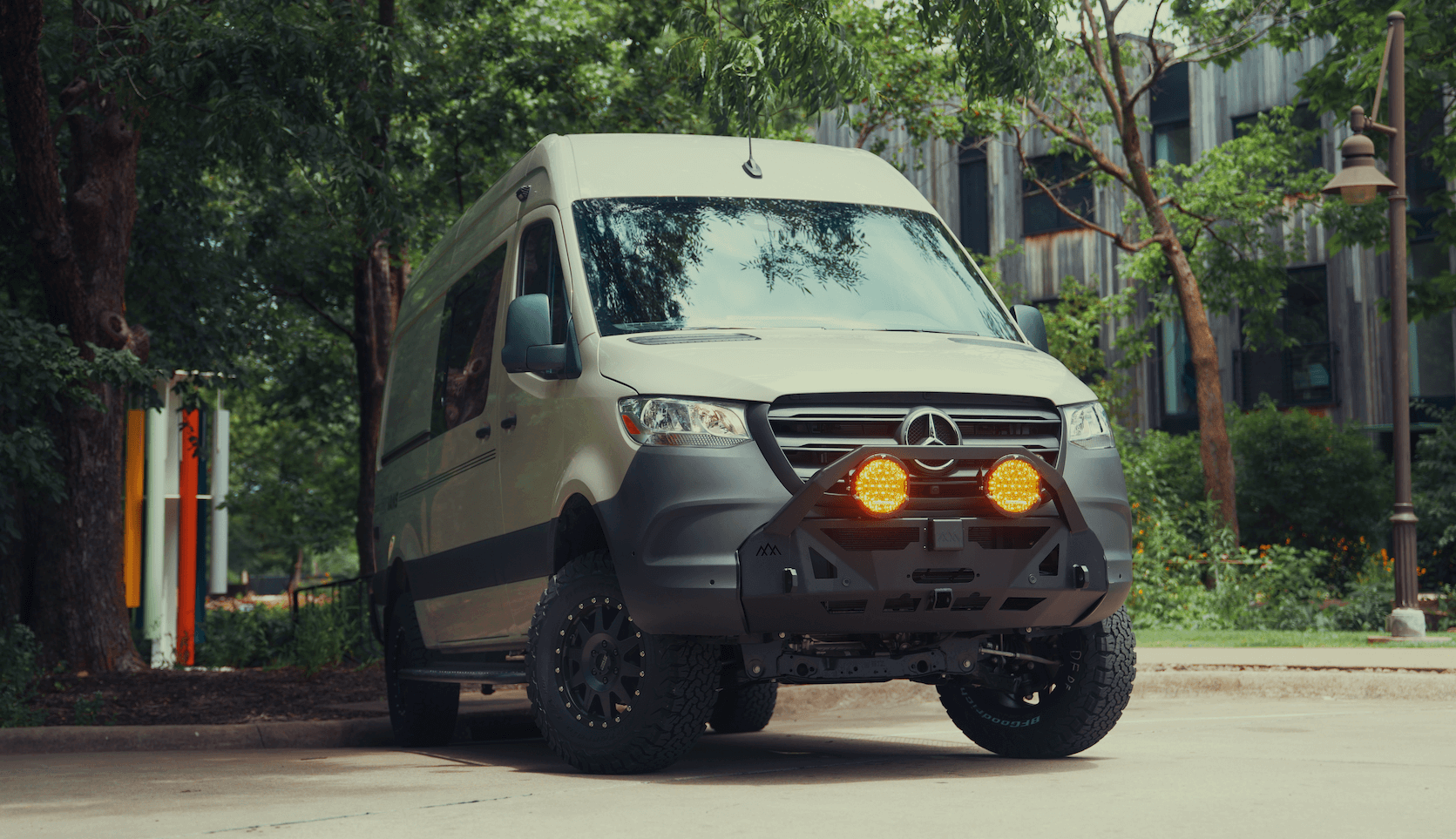Recreational Vans

A hybrid camper van blends two power stories. The drivetrain uses both an engine and an electric motor. The living space draws from a dedicated house battery system. When these systems work in harmony, you get fewer fuel stops, quieter camps, and strong low speed control on tight trails or city streets.
Hybrid has two meanings in this space. First, the vehicle powertrain can be hybrid, plug in hybrid, or range extender style. Second, the cabin can combine solar, alternator charging, and shore power for a balanced energy plan.
On the cabin side, a house battery bank, inverter, smart charger, and solar array keep appliances running. That can include an induction cooktop, a twelve volt fridge, ventilation fans, water pump, laptops, and lighting. The goal is simple. Camp quietly, cook fast, and avoid running the engine at rest.
Think of the van in two circuits. One moves the wheels. One runs your life inside the van. A drivetrain hybrid improves miles per gallon and traction. A house power hybrid mixes charging sources to keep lithium batteries full. You can own a hybrid camper van with a traditional engine and a smart cabin energy plan. Or you can pair a hybrid or plug in hybrid vehicle with a modern off grid electrical system and get the best of both.
Hybrid camper vans shine in mixed driving. Town errands, trailheads, and long stretches on the highway all benefit from an efficient power split. Regenerative braking helps in the mountains and in stop and go traffic. Many plug in models can glide through campgrounds on electric power, keeping noise low and neighbors happy.
Advantages:
Tradeoffs:
In North America, full size hybrid vans are rare. That pushes many travelers toward two paths. First, compact platforms like Toyota Sienna hybrid or Chrysler Pacifica plug in can become efficient micro campers with careful layouts and lightweight materials. Second, a traditional full size van can be paired with a high output alternator, solar charging, and a lithium house system to create a hybrid cabin energy model that avoids idling.
In Europe, examples like the Ford Transit Custom PHEV show how a range extender can fit van life. You can charge in town, run school drop offs on electricity, then let the small engine maintain range on longer drives. The concept translates well to camping when paired with a smart house system and idle free climate strategies.
Start with a load list. Add up daily watt hours for cooking, cooling, heating, refrigeration, devices, and lighting. A typical cabin might draw from an induction cooktop, a compressor fridge, a diesel or gas heater, a water pump, and several laptops or cameras. Once you know the number, size the lithium battery bank to handle one to two days without sun. Then size solar to recover a large share of daily use, and add alternator charging to close the gap while you drive.
Key components:
Keep wiring neat, fused, and labeled. Separate high voltage vehicle systems from low voltage house circuits. Thermal management matters. Batteries prefer moderate temperatures, so consider insulation and active heating or cooling where winters bite.
Many trailheads and campgrounds limit idling and generator use. A well designed hybrid camper van respects the peace. Rely on stored energy for cooking and lights. Arrive charged and plan your day to replenish while you drive. In popular areas, use electric only creep speeds when possible to reduce noise and dust. Pack out your waste, leave sites clean, and follow local fire restrictions.
Most plug in hybrids use level one or level two charging, which works well at home or in town. DC fast charging is uncommon for plug in vans and not needed for house batteries. Your cabin system relies on alternator input and solar for most of its energy. Shore power remains a great top up when you reset before the next leg.
Now, if you want these ideas to move from sketch to street, a professional custom shop brings the pieces together. Layout, structure, wiring, and safety turn concepts into a durable travel tool.
We design around real travel patterns. Daily energy logs, storage needs, sleeping plans, and climate goals shape the build. Our team integrates lithium power, alternator charging, solar arrays, and shore power with clean cabinetry and serviceable wiring. For drivers who want an efficient platform, we map weight, payload, and center of gravity to keep the van composed on mountain passes and gravel roads.
Located in Fayetteville Arkansas, we invite you to plan the handoff as part of the trip. Pick up, learn your systems, and roll into the Ozarks to test your new rig on real roads and real trails. We set you up with a full walkthrough and clear documentation so your first night feels easy.
Tell us where you camp, how you cook, and how you like to travel. We will translate that into a hybrid camper van that runs quiet, sips fuel, and feels like home out there. When you are ready, we are here to design, build, and deliver a van that fits you.
Ready to turn hybrid efficiency into real world adventure? Book a consult to design your van with practical power, quiet comfort, and road tested reliability. Our Fayetteville Arkansas team plans every circuit, cabinet, and system to match your travel style. Tell us how you camp and we will map the build.
ADDRESS:
6159 E Huntsville Rd, Fayetteville, AR 72701
PHONE:
(479) 326-9200
EMAIL:
info@ozkvans.com